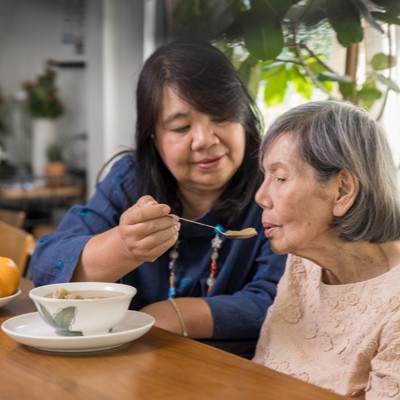
Physicians screen patients for social needs: what happens next? Survey, analysis, and policy recommendations
Increasingly, physicians are screening patients for social needs then connecting patients to local organizations that can provide the required services. In Michigan, the U.S. Centers for Medicare & Medicaid Services provided funding to policymakers to launch new projects and partnerships to encourage physicians to screen for social needs like food and housing insecurity. The state also supported pilots that connected …
Read more >
Clear language and human-centered design can help Medicaid enrollees keep their coverage
Michigan’s expanded Medicaid program, the Healthy Michigan Plan (HMP), has provided health insurance coverage to hundreds of thousands of Michiganders since its launch in April 2014. However, in 2019, the state passed a work requirements bill, which introduced more steps needed to retain HMP coverage. The bill asked HMP enrollees to report a minimum of 80 hours of work per …
Read more >
Long COVID’s impact on Michiganders and the Michigan economy
At the time of this publication in May 2022, Michigan has had just over 2 million confirmed COVID cases, excluding deaths. At the percentages indicated in our study and in the literature, 700,000 of these Michiganders could have or may experience long COVID. This could have a major economic burden on families and the state of Michigan due to long …
Read more >
Michigan physicians share perspectives on telehealth opportunities and challenges
The COVID-19 pandemic led to an unprecedented expansion of telehealth in Michigan and across the United States. This expansion was due, in large part, to a series of policy changes following the pandemic, such as increased insurance coverage for telehealth and the loosening of telehealth delivery restrictions. These new policies allowed patients greater access to remote care to reduce exposure …
Read more >
Michigan’s physicians and health care providers are burnt out: What can we do to help them navigate pandemic pressures?
Michigan’s latest COVID-19 surge is among the worst in the country, and if there’s one thing we know about COVID’s effect on our nation’s health care system, physician and health care provider burnout will soon follow. Physician burnout is a concern for everyone. It’s tied to lower-quality care, reduced clinical productivity, and increased physician turnover. In the general population, we …
Read more >
Here’s the current state of programs supporting Michigan’s 1.7 million caregivers
Like most of the United States, Michigan’s population is aging. Accordingly, the number of unpaid family and informal caregivers—those who support others with tasks related to daily living, such as transportation, feeding, and bathing—has increased substantially over the last three decades. The AARP Public Policy Institute estimated the economic value of unpaid caregiving at $470 billion in 2017. For reference, …
Read more >
Children benefit from the integration of behavioral health consultants at pediatric clinics, but can practices bear the cost?
While a growing body of evidence demonstrates the health benefits of embedding behavioral health care consultants into medical practices, many providers–including pediatric practitioners–are rightfully cautious about embarking on integration initiatives. Integration is a complex process–one that requires a significant commitment of time and resources–and not all integration initiatives are economically sustainable. Here, we provide a simple tool for determining whether …
Read more >
The hidden cost of unpaid caregiving: The case for supporting unpaid caregivers across the state of Michigan
There are 1.4 million unpaid caregivers across Michigan. The work they do keeps residents from needing more costly forms of health care. But Michigan’s unpaid caregivers often do not receive the support they need. Unpaid caregivers help friends, family members, and neighbors in many ways, including activities that allow individuals to maintain their independence, like household chores, managing finances, and …
Read more >
Michigan health care and mental health care providers need more training, support to serve the state’s aging veterans
Only 6.7 percent of Michigan health care and mental health providers are fully prepared to serve Michigan’s aging veteran population according to a new report by the Center for Health and Research Transformation (CHRT) at the University of Michigan. This finding is based on CHRT’s statewide assessment of the readiness and capacity of Michigan health care providers to serve older …
Read more >
Build support for COVID-19 contact tracing and other public health measures by working with trusted messengers
A new survey from the Center for Health and Research Transformation (CHRT) and Department of Learning Health Sciences (DLHS) at the University of Michigan finds that while more than two-thirds of Michiganders report that they would be willing to participate in some form of COVID-19 contact tracing, one-third report that they would not, and many express concerns about misinformation regarding …
Read more >